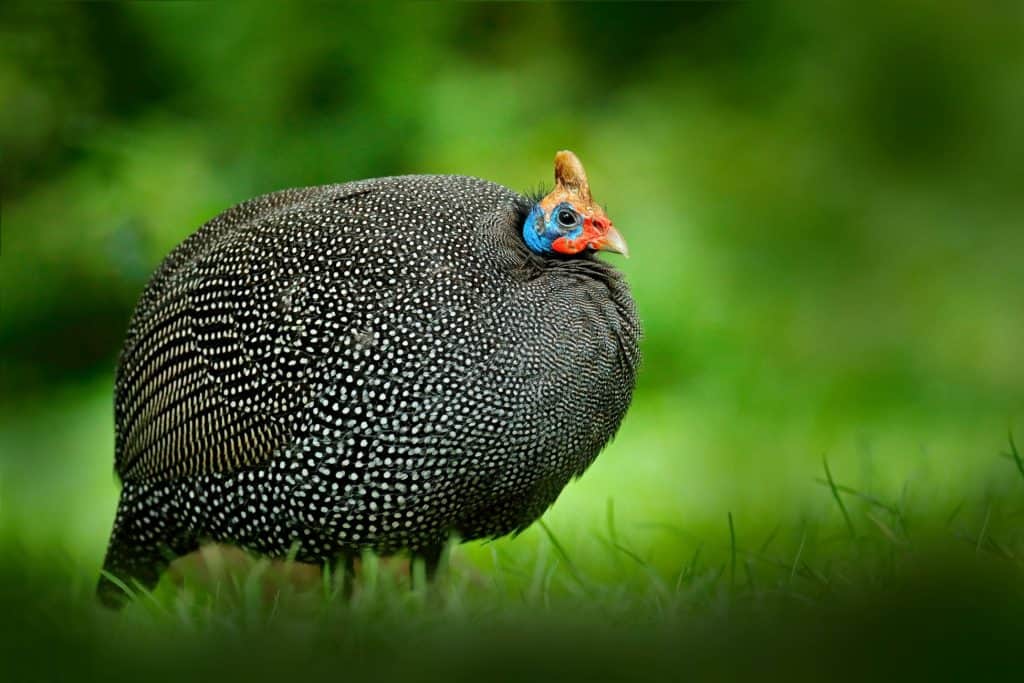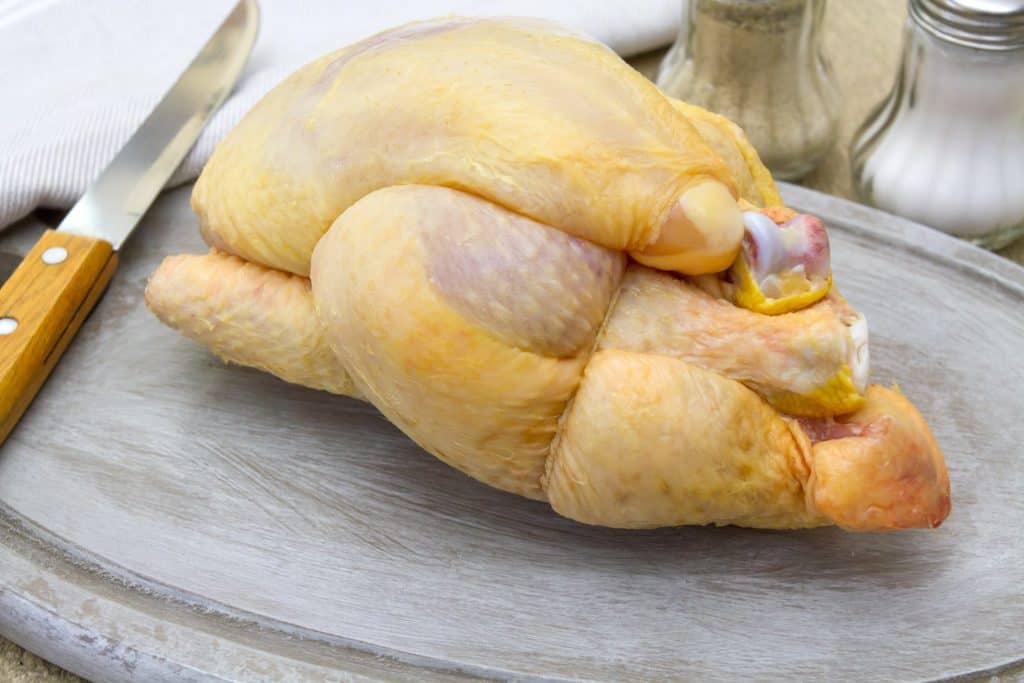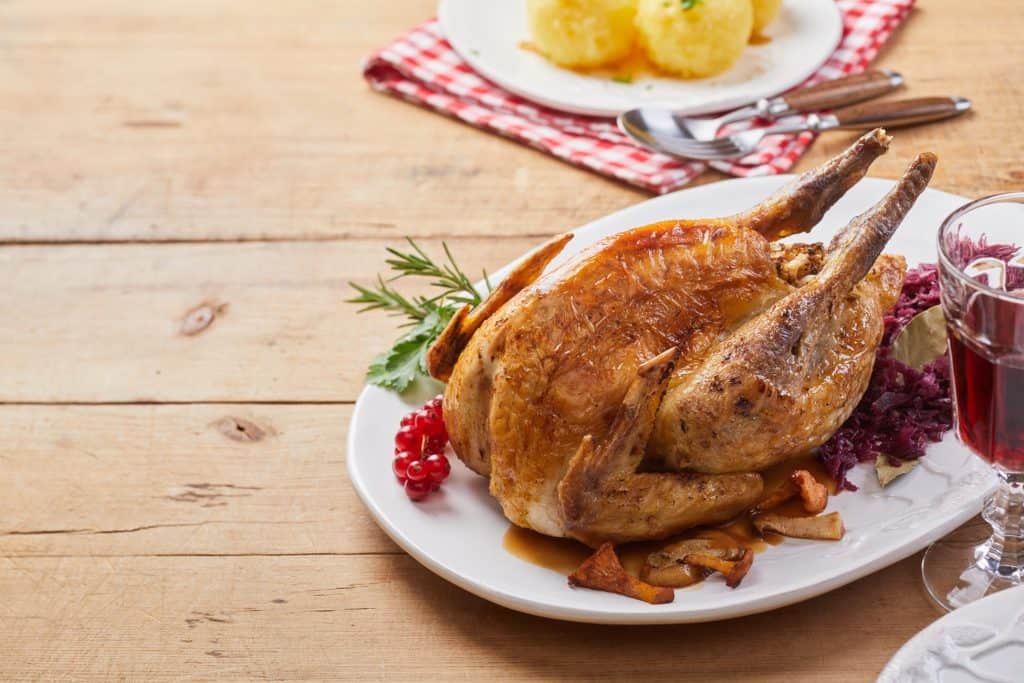When it comes to pregnant women and their diets, poultry isn’t usually their fare of choice. Chicken is fine given how often it’s cooked in the household, but the same can’t be said for the rarer types of poultry. Guinea fowl, for instance, may feel like a needless risk to take.
But can I eat guinea fowl while pregnant?
Pregnant women can eat guinea fowl safely, but it may not be worth it for some women. While it’s similar to chicken, guinea fowl is not only pricier but way more difficult to prepare. If you’re confident in your cooking skills and have some cash to spare, go for it!
As it’s a poultry product, always cook your guinea fowl to an internal temperature of 165°F (74°C). Don’t bother washing your guinea fowl, as you may spread these contaminants all around your kitchen – trust that cooking will deal with these effectively.
You also have to be mindful of a ton of potential bacteria contaminants – most of which cause diarrhea and dehydration, which will seriously tax a pregnant woman’s health.
While you can eat guinea fowl while pregnant, is it worth the hassle? Guinea fowl do have advantages over chicken, but the tradeoffs and considerations are pretty hefty as well.
Guinea Fowl vs. Chicken

Guinea fowl are a poultry species native to Africa and actually have a lot in common with chicken. They’re just a little smaller, leaner, and pricier due to the importation expenses.
A guinea fowl boasts a slightly gamier flavor than chicken, but enjoying that can be a little difficult – given their leanness, guinea fowl meat tends to dry out quite fast when cooked under high heat.
Overall though, if you can eat chicken, you can eat guinea fowl – it just tastes a little different, costs more, and requires extra care to cook. You can eat guinea fowl while pregnant but making it worth the effort and expense might be challenging.
The Golden Rule

When it comes to cooking poultry, the most important rule is to always hit an internal temperature of 165°F (74°C). But why is this number so specific?
It’s because Salmonella is the most heat-resistant common contaminant in poultry and has catastrophic effects on pregnant women and their babies. Salmonella causes vomiting and diarrhea, which can lead to severe cases of dehydration. It may even contaminate your bloodstream with bacteria, which can have fatal repercussions.
The worst part is twofold: salmonellosis cannot be safely treated while pregnant, and salmonellosis can be passed from mother to child. The latter will cause serious health complications, while the former deters medical intervention.
Your best bet would be to reduce the chance of infection altogether. Food safety is critical for pregnant women, and doubly so when it comes to poultry and seafood.
Don’t Wash Your Guinea Fowl
This may sound strange, but washing your poultry is actually the less sanitary option. This practice of washing introduces a significant risk of cross-contamination, as the water splashing around can spread surface-level bacteria from the meat all around your kitchen.
Once you remove the visible contaminants, you’re free to start cooking your guinea fowl – the high heat will handily kill any problematic bacteria on and in your poultry.
Best Way to Cook Guinea Fowl

Guinea fowl’s main cooking difference from chicken is that its meat is much leaner, so you have a greater chance of burning or drying it out. To minimize this risk, you can either cook it slowly at low heat or sear it quickly for a short duration – do the former when you’re handling a whole bird and the latter if you’re dealing with smaller cuts of guinea fowl.
Guinea fowl has a pretty unique taste coming at a high price, so we’d recommend getting some cooking practice in with cheaper poultry first. If you’re considering other protein options, beef jerky can be a convenient and tasty choice, though it’s a significantly different experience from cooking fresh poultry.
As far as cooking methods go, we’re partial to roasting, grilling, and braising guinea fowl for optimal flavor, texture, and tenderness. You really want to bring out the gamey flavor of the meat, and perhaps a chance to enjoy some delicious, crispy skin. No matter your method, always keep a meat thermometer on hand – you need to be sure to hit that temperature threshold.
Boiling or steaming could be healthier options, but at that point why splurge on guinea fowl? You could easily substitute it for cheaper poultry and get a comparable meal.
You can eat guinea fowl while pregnant, but it’s important that you enjoy what it has to offer! Don’t just treat this as filler meat, because you’ll not only burn a hole in your wallet for nothing but lose out on an awesome culinary experience!
Final Thoughts
You can safely eat guinea fowl meat while pregnant, as it’s barely any different from chicken. The same food safety guidelines need to be followed, and you’ll be golden if you manage that. Your goal should be cooking it right, so you can appreciate what guinea fowl has to offer!